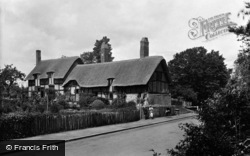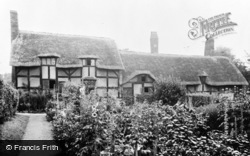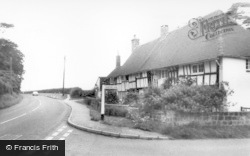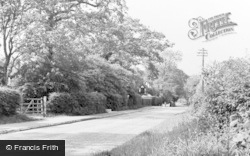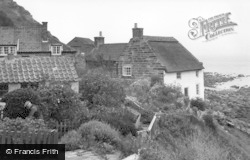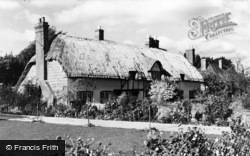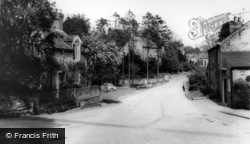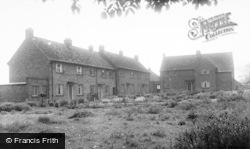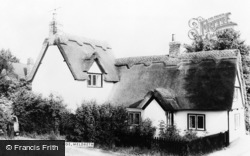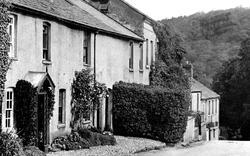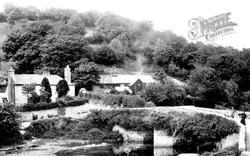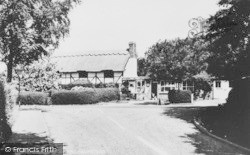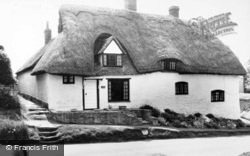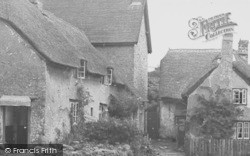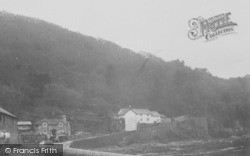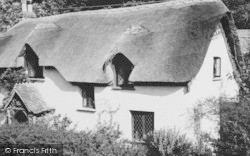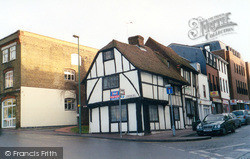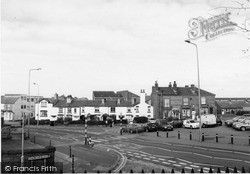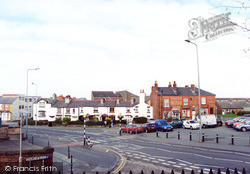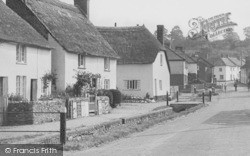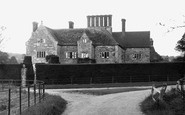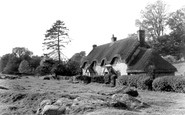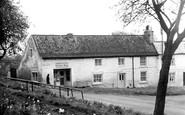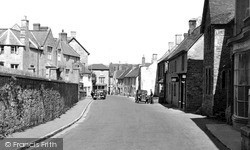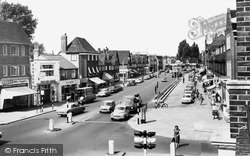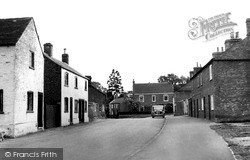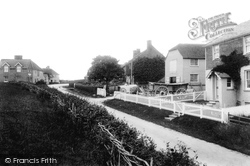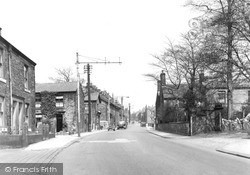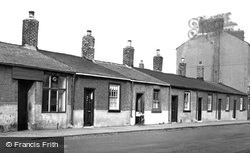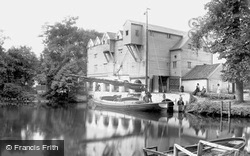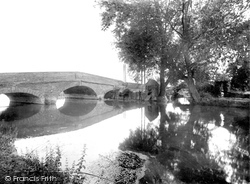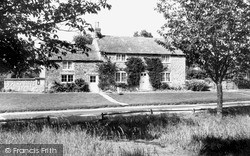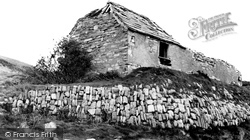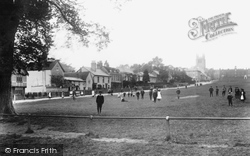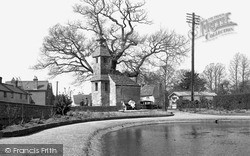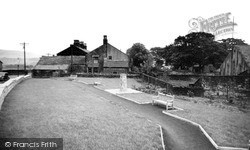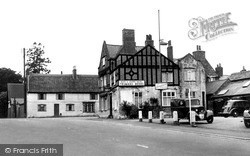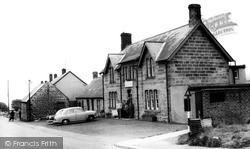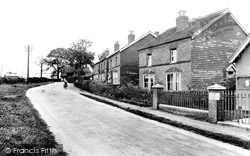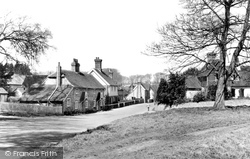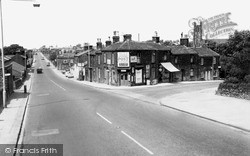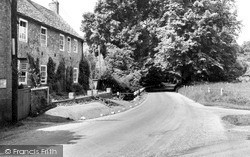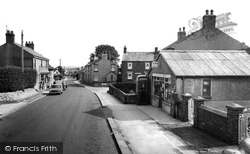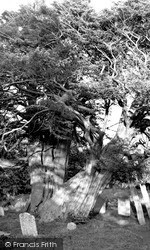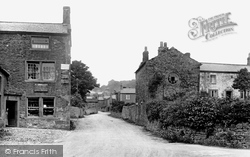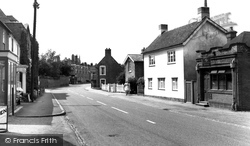Places
6 places found.
Those places high-lighted have photos. All locations may have maps, books and memories.
Photos
2,406 photos found. Showing results 1,521 to 1,540.
Maps
41 maps found.
Books
Sorry, no books were found that related to your search.
Memories
2,827 memories found. Showing results 761 to 770.
The Sales
It was about 1956. John Sample had started to change with the times and bought himself a pick up truck, him, 'Auld Jimmy' and me went to the horse sales at Gateshead just over the bridge, and I cannot for the life of me remember if it ...Read more
A memory of Newburn in 1956 by
Drawbridge Cottage Exeter Canal Photo Ref 82302
Ref: 82302 This is a photo of Drawbridge Cottage where my family lived in 1901. John Thomas Helley and wife Eliza Ann(nee Gitsham) lived there with their children Florence, Maud, Louie ...Read more
A memory of Newton St Cyres in 1920 by
Living On Elmer Road Middleton On Sea 1962 1974
I lived there as a young child from about the ages of 2-14 years old (1960-early 1970s). As a young child Elmer Road seemed to be at the end of the world. The main road heading east hit a ...Read more
A memory of Middleton-on-Sea in 1969 by
Memories Of Being A Duckpaddler
I was born in a little cottage in Whetstone in 1938, just across the road from the brook. When it rained it used to flood all the bottom end of the village, and when the buses went through the floods, the ...Read more
A memory of Whetstone in 1940 by
Halcyon Days In The 1950s
What fantastic days they were, despite the hardship. We were a family of 9 Seven children Allan Joy,twins Michael and David, myself Sam and a second set of twins Kathryn and Brian I too remember Mrs Greys shop, ...Read more
A memory of Wrottesley Park in 1955 by
Batemans My Grandfather
My grandfather, A J Hurd, was, for a time, Rudyard Kipling's head gardener at Batemans. He, my grandmother and my mother (now Joyce Richardson) and her sister (now Barbara Wainwright) lived in one of the cottages (which ...Read more
A memory of Burwash in 1920 by
My Great Grandfather And Mother Isaacs
In 1939-40 I was evacuated to Lockeridge to live with my great-aunt Mrs Haynes, who I think lived in one of the thatched cottages in the photo of the Dene. She was, I think, housekeeper at the big house in ...Read more
A memory of Lockeridge in 1940 by
The Local Dances And Playing Pool
In the mid 1950s to early 1960s there were local dance halls, one at Newburn which was down Station Road, take a left towards the bridge and it was just there on the left side opposite the level crossings near ...Read more
A memory of Newburn in 1955 by
Matchbox And Dinky Toys
I grew up at Barforth Hall and left when I was 18. I used to spend my pocket money on toy cars with Mrs Brown in this dark and evocative shop, the memory has never left me. I would also go to buy my parents' Christmas ...Read more
A memory of Gainford in 1964 by
Growing Up In Holbeach St Marks (The Marsh)
Although I was actually born in Holbeach Bank, and spent the first 3 1/2 years of my life in Holbeach St Matthews, I spent my childhood in Holbeach St Marks. My mother and father Ray and Greta ...Read more
A memory of Holbeach St Marks in 1955 by
Captions
2,020 captions found. Showing results 1,825 to 1,848.
These solid stone cottages, and the George Inn on the left, exhibit the robust and simple style which is common to most British fishing ports.
Among the old buildings, close to the new centre, is Barn House, an early barn conversion of little merit, Field End Farm House, Field End Lodge and Retreat Cottage, all timber-framed.
The fine house closing the view and the cottages in general remain readily recognisable. A single regret is the free importa- tion of plastic windows, which strike a discordant note.
The Village 1903 Just off the road between Lyminge and Hythe, this jettied timber-frame cottage stands at the approach to the 13th- century church.
It landed on a row of cottages in Chapel Street opposite St Anne's Church, killing seven residents. The event is commemorated by the Whitehead Garden.
From the doors of these cottages fisherwives in their distinc- tive costume sold fish. A similar situation used to exist at Newhaven, near Edinburgh.
The old lock has long been derelict, and pleasure craft now moor by the riverside, which is separated from the cottages and village street by meadows.
To the right is the garden of Ivel Cottage.
The post office here, like so many in rural areas, closed and was incorporated into Post Cottage.
Seen as a ruin, looking east from the beach of Worbarrow Bay, stone-roofed Sea Cottage was the home of generations of the Miller family.
Along the western edge of the Green, medieval and Tudor houses have either been subdivided into workers' cottages, rgiven Georgian façades.
The village pond, the prison, the ancient hollow oak and the cottages nearby all remain today.
The inscribed plaque on the cottage told the story of how Hargreaves was compelled to leave Stanhill because of persecution by local handloom weavers who feared for their livelihoods.
Excellent 18th-century houses are to be found on the Leicester Road, but here we see a contrast between the thatched cottages of pre-18th-century date and the Rose and Crown pub, an early roadhouse.
Lord Armstrong began building Cragside in the 1860s; he also built almshouses in the town (1896) as well as the Addycombe cottages (1873) for retired staff from his estate.
A road of brick cottages is seen next to the Wesleyan church.
The picture shows Downland cottages with flint walling and tiled roofs. The village is now cut in two by a very busy dual carriageway, and is the location of the University of Sussex campus.
This former agricultural village gave way to rows and rows of workers' cottages, many of which remain.
The 1930s saw the demolition of a number of picturesque cottages to make way for less attractive replacements, particularly in Fir Tree Lane, once called Dog Lane.
Amongst these was a very old cruck-built Fylde cottage with clay and straw walls from the 16th century. Leckonby Hall is the most interesting historical building hereabouts.
This very pretty village with its flint and brick houses and cottages runs south from the main road to its parish church of St Mary and St Peter, which is set high above the lane with the ruins of Wilmington
Many of the old houses were weaver's cottages, built in a time when hand-loom weaving was the major industry in the area.
Even here the developers are busy: the cleared space beyond Laburnum Cottage is soon to be increased in size with the removal of Nos 50 and 51 Cross Street, opposite the Angel Hotel, at the junction
However, look a little closer and you can pick out a few subtle changes.The white cottage on the right of the High Street is now the premises of an estate agent, and the ivy which covers the house
Places (6)
Photos (2406)
Memories (2827)
Books (0)
Maps (41)


